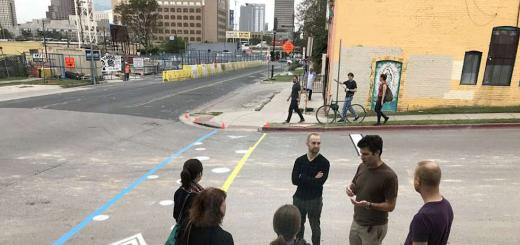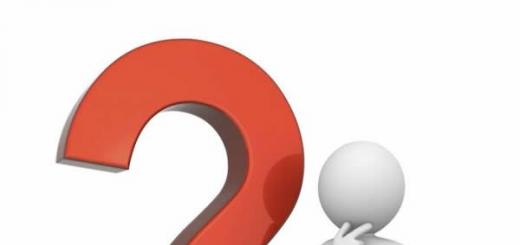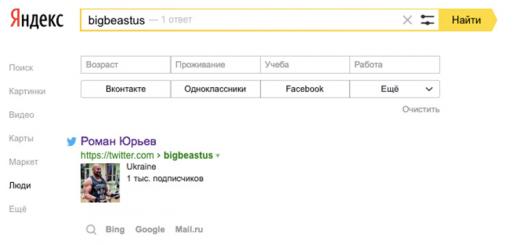When individual words are combined into sentences, they become its members, and each of them has its own Syntax studies how a coherent text is created from words. Definition, circumstance, addition - these are the names of the words participating in the sentence, which are combined into a group of secondary members.
"Lords and Servants"
If the sentence has minor members, then there are major ones. These are subject words and predicate words. Each proposal has at least one of the main members. More often, syntactic constructions consist of both - the subject and the predicate. They represent grammatical basis suggestions. But what do the secondary ones (definition, circumstance, addition) do? Their task is to supplement, clarify, explain the main members or each other.
How to distinguish minor members from major ones in a sentence?

First, let's remember that the main members of the sentence contain basic information about the subject, person, action, state. In the sentence “Recently it has rained (predicate) (subject)”, the phrase “it has rained” forms the basis, which concludes the main meaning of the statement.
Secondary members (definition, circumstance, addition) do not contain statements about objects, persons, states and actions, they only explain those statements that are contained in the main members. "The rain has passed (when?) recently."
Secondly, you can recognize the main black points by the questions that are asked to them. The subject will always answer the question "who?" or "what?". The predicate in the sentence will answer the question “what is it doing?”, “Who is it?”, “What is it?”, “What is it?”. The members of the proposal, which are called secondary, also have their own, only peculiar to them, questions. Let's talk about them in more detail.
Issues of definition, additions, circumstances
- By definition, linguists call a member of a sentence that describes a sign, quality of an object or person. "Which, which, whose?" - questions asked for definition.
- An addition is that minor member that contains the name of a person or object, but not the one who performs or experiences the action, but the one that has become the object for the action. Questions (this does not include the nominative) are questions of the complement (circumstances and definitions never answer them).
- A circumstance is a minor term that denotes in a sentence a sign of an action or another sign. “Where, from where and where, when, how, why and why?” - these are the questions that can be asked to the circumstance.
We have considered questions of definition, addition, circumstances. Now let's find out what parts of speech each of these minor terms can be expressed.

Characteristic definitions, examples
On the questions that are asked for the definition, it is clear that adjectives, participles act as this member of the sentence.
- “I heard (what?) A growing noise.” The participle "increasing" here is a definition.
- "I'm already taking (which?) the third exam." The ordinal number "third" plays the role of definition.
- "Katya was wrapped in (whose?) mother's jacket." The adjective "mother's" is a definition.
During syntactic analysis, this member of the sentence is underlined with a wavy line.
Specifics of the circumstances
The groups of words that can express the circumstance are huge, and therefore this member of the sentence has several types - places and times, goals and reasons, comparisons and modes of action, conditions, and concessions.
Circumstances of the place
They characterize the direction and place of action. They are asked questions “where, from where and where”?
- "Man has not yet visited (where?) Mars." The circumstance in this case is expressed by a preposition and a noun in the prepositional case: "on Mars."
Circumstances of time
They characterize the time period in which the action takes place. They are asked the questions “since when, until what time, when?”.
- "We haven't seen each other (since when?) since last winter." The circumstance is expressed by the phrase of an adjective and a noun, which is in genitive case and has a preposition: "from last winter."
- "I'll be back (when?) the day after tomorrow." The adverb "the day after tomorrow" is used as a circumstance.
- “We need to have time to cross the border (until what time?) before evening.” The circumstance of time is expressed by the noun in generative. case with the preposition: "until the evening."
Purpose Circumstances
They explain what the action is for. "Why, for what purpose?" - his questions.
- "Raisa Petrovna went to the sea (why?) to swim." The circumstance is expressed here by the infinitive "to bathe".
- "Sergey came to the set (for what?) For samples." The circumstance has become a noun that resides in and has a preposition: "for tests."
- “Masha cut the rug (why?) to spite the governess.” The circumstance is expressed by the adverb "out of spite."

cause circumstance
It characterizes the reason for the action. "On what basis, why and why?" - questions about it
- “Artem was absent from the rehearsal (for what reason?) Due to illness.” The circumstance is expressed by a noun in gender. n. with the pretext: "due to illness."
- "I told her stupid things (why?) in the heat of the moment." The situation is expressed by the adverb "in the heat of the moment."
- "Alice opened the door, (why?) Taking pity on the traveler." As a circumstance, the adverbial turnover “having taken pity on the traveler” is used.
Circumstances of the course of action
They describe exactly how, in what way it is performed, to what extent this action is expressed. His questions are the same.
- "The master worked (how?) easily and beautifully." Circumstances are adverbs "easy" and "beautiful".
- "The dress was (to what extent?) very old." The circumstance is expressed here by the adverb "completely".
- "The boys ran (how fast?) headlong." The circumstance is expressed by a phraseological unit.
Circumstances of comparison
We also ask the question “how?” to them, but they express a comparative characteristic.
- “The locomotive, (like who?) Like a beast, flickered with headlights.” Obst. expressed by a noun with the union: "like a beast."
Circumstances conditions and concessions
The first shows under what conditions an action is possible, and the second describes in spite of what it happens.
- "He will remember everything (on what condition?) if he sees Victoria." The combination “conjunction, verb, noun” acts as a circumstance: “if he sees Victoria”.
- "The club will not cancel the competition, (in spite of what?) despite the rain." Obst. expressed participle turnover: "Despite the rain."
When parsing, this term is underlined by a dot-dotted line.

That is the definition and the circumstance. Complement can be expressed by nouns or pronouns.
Examples of additions
- “The sun illuminated (what?) the clearing.” The complement is expressed by the noun in vin. P.
- “Marina suddenly saw (who?) Him.” Complement - a pronoun in the accusative case.
- “Children were left without (what?) toys.” As an addition, a noun in gender is used. P.
- "We recognized (who?) Martha by her walk." Complement is a noun in gender. P.
- "Irina rejoiced (what?) The sea, like a child." In the role of an object - a noun in the dative case.
- “Alexey gave (to whom?) the manuscript to me” (expressed by a pronoun in the dative case).
- “Last summer I got interested in (what?) Drawing” (noun in the instrumental case).
- “Ivan became (by whom?) a programmer” (a noun in the creative case).
- “The child enthusiastically talked about (what?) Space” (noun in a sentence).
- "Don't tell him about (who?) her." As an addition, a pronoun in the prepositional case is used.
When parsing, this minor term is underlined with dotted lines.
Place and role of secondary members of the proposal

Secondary members can clarify and explain the main ones in different configurations, Example: “The mother’s gaze warmed (who?) The baby, (how?), Like the sun, (what?) Affectionate and hot.” Scheme this proposal is: definition, subject, predicate, object, circumstance, definition.
And here is a sentence in which only the predicate is present as a basis: “Let's spend (what?) The year (what?) Gone (how?) With a song.” Offer scheme: compound predicate, addition, definition, circumstance.
We can make sure that these members are secondary only grammatically, but not in content. Sometimes the meaning that the definition, circumstance, addition conclude is more important than the information conveyed by the predicates and subjects.
Secondary members of a sentence are one of the most difficult topics in Russian. On the other hand, everything is subject simple rules which are very easy to understand. What is a definition, addition and circumstance in Russian, how to find them in a sentence and under what conditions are they separated by commas? Let's find out.
A bit of theory
The object answers the questions of indirect cases (all but the nominative) and refers to the subject. Most often it is expressed by a noun, phraseological phrase, a combination of a numeral with a noun, an infinitive (looked ( on whom?) for the person who entered; donated ( to whom?) him; I bought ( what?) three books). Additions are either direct or indirect. In the first case, they are expressed as part of speech in the genitive case without a preposition (did not read (who, what?) books) or a noun expressing part of the whole in the same case (drink ( what?) tea). All other additions are indirect.
A definition designates a sign of an object and answers the questions "what?", "whose?" It can be any part of speech, the main thing is descriptive functions. There is an agreed upon (combines with the word being defined in gender, number and case (handle ( which?) blue, forest ( which?) greenish)) and inconsistent (associated with the main word in meaning or grammatically (cap ( which?) sideways, in the house ( what?) from wood)).

The circumstance in Russian is the largest secondary member of the sentence. It answers the questions of the adverb and can indicate a place (went ( where?) home), time (meet me ( when?) tomorrow), mode of action (saying ( how?) loudly), etc. (all the same characteristics as the adverb).
In syntactic parsing
The Russian language is amazing: addition, definition, circumstance are not only secondary members that explain the main ones, but also help to fulfill parsing. If there is a circumstance in the sentence, but there is no predicate that it explains, we can safely talk about an incomplete two-part sentence (I ( where?) home - the verb "go" / "went" is omitted, and therefore incomplete). The addition and definition, in turn, explain the subject, so a sentence in which there is no predicate, but there are these secondary members, can also be denominative ( "Early morning").

But here it is important to remember that the definition-adjective, standing after the noun, automatically turns into a predicate, that is, a sentence "Gold autumn" will be a common denominative, and "Golden Autumn"- bipartite.
Separate with commas
But let us return to the isolation of such terms as additions and circumstances. The Russian language is arranged in such a way that they are rarely separated by commas from the main sentence. Moreover, we can say that add-ons almost never stand out.
In turn, includes the Russian language isolated circumstances. In total, there are three cases when this member of the sentence is separated by commas:

- Firstly, if it is expressed by a participle turnover ( "After driving two hundred kilometers, we understood everything") or single gerund ("After eating, the boy went on his way"). But here it is important to distinguish the usual gerund from the gerund, which is more like an adverb of the mode of action ( "He read lying down"), because in this case there will be no separation.
- Secondly, if the construction “despite” (this is something like an NGN concession) can be replaced by the preposition “contrary”, it is not a participial phrase ( "Despite all the difficulties, we made it").
- Thirdly, if there are comparative phrases with the words "as", "as if", "as if", also similar to adverbs of mode of action ( "The clouds, like cotton wool, floated low above the earth").
The circumstance is not distinguished in Russian:
- If it is expressed by a phraseological unit, which can be replaced by an adverb ( "Ran headlong", i.e. very quickly).
- In the case of adverbial revolutions - if they are homogeneous members of a sentence with a non-isolated circumstance ( "He told everything frankly and not at all embarrassed"). Here everything depends on the meaning: if it is important how the action was performed, i.e., it is impossible to separate the predicate from the circumstance without breaking the logical connection, then no isolation is required ( "She sat with her head down").
Conclusion
Separate addition, definition and circumstance in Russian is a very simple, but very useful and, admittedly, frequently encountered topic. Understanding the rules will allow you to easily perform tasks of any complexity related to separating secondary members of sentences with commas.
In a sentence, in addition to the subject and predicate, which make up its grammatical basis, secondary members can be used to clarify, specify or supplement the content. These include additions, definitions and circumstances. Each group of secondary members of the sentence performs its specific syntactic function in speech.
Definition
Addition- a secondary member of the sentence associated with the predicate, which names the object or person that acts as the object of action in a particular speech situation.
Circumstance- a minor member of the sentence, indicating the method, image or other sign of the action expressed by the predicate.
Comparison
The addition can be expressed by a noun, a pronoun or a substantiated part of speech, occupying a position in the sentence structure after the spreading word. Usually it is a verb with which the object is associated with a control method. Such a connection is determined by questions of indirect cases.
The transition (through what?) through the pass turned out to be difficult.
The flowers were placed (in what?) in a vase.
The object indicates the object of the action or the means by which it is performed: to crochet; feed breakfast; chasing pigeons; read a book.
The circumstance is expressed by an adverb, gerund or participle turnover, in some cases - a noun and a phrase with a circumstantial meaning. Questions can be put to the circumstance : as? what way? when? for what purpose? to what extent? where? why?
(When?) Occasionally the wind broke and carried (from where?) an indistinct noise from the sea.
He lived (how?) simply, caring only about his daily bread.
The circumstance is always connected with the predicate, but can be structurally separated from it by other members of the sentence.
Thus, the object and circumstance perform different semantic and syntactic functions in the sentence.
Findings site
- The circumstance indicates the image, method or time of action, that is circumstances under which it proceeds. Complement denotes an object or means of action.
- The circumstance is expressed by an adverb or parts of speech close to it in meaning. The complement is most often expressed by a noun or a pronoun.
- In addition, questions of indirect cases can be raised. Questions addressed to circumstances depend on the way in which the circumstantial meaning is expressed.










